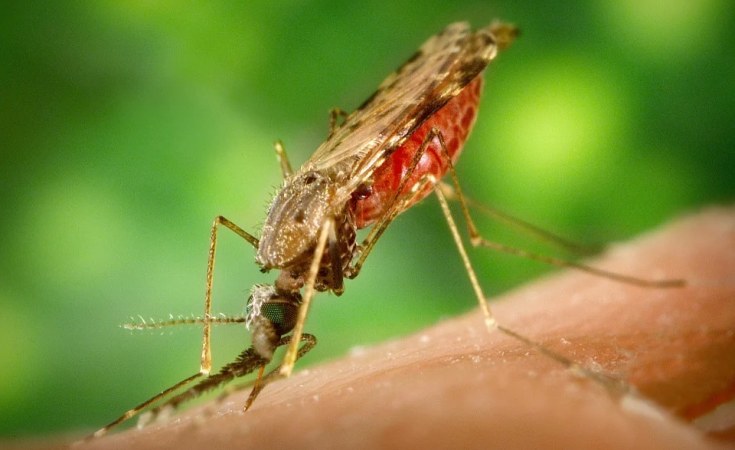The French association Élus Locaux Contre le Paludisme (ELCP) is sounding the alarm about the increased risk of malaria on the African continent due to climate change. The group is calling for international solidarity and urging France to step up its leadership in strengthening global health security.
In 2022, according to the latest WHO report, malaria cases worldwide rose by five million to 249 million, taking us a step further away from the goal of a malaria-free world by 2030. Another unsettling fact: Ninety-five percent of cases and deaths due to malaria are in sub-Saharan Africa, and four countries alone account for half of all cases and deaths.
In metropolitan France, malaria was eliminated in the 1970s thanks to a combination of malaria control measures such as implementing epidemiological surveillance, preventing mosquito bites, detecting and treating cases, and preventing infected patients from relapsing. But in 2019, 212 cases were recorded in French Guiana, and around 6,000 cases a year are imported through travel to endemic countries.
The recent report from the Global Fund to Fight AIDS, Tuberculosis and Malaria bears this out: the fight against malaria is a victim of climate change. Increased flooding brought about by the climate crisis, as in Pakistan and Mozambique, has led to an increase in the number of malaria cases. Emergency programmes have been deployed to address this health emergency.
But these facts and figures are avoidable. The financial resources to put an end to malaria do exist. It is, above all, a question of political will.
We, the members of Elus Locaux contre le Paludisme [local elected officials against malaria, or ELCP], are affected directly and indirectly by this disease and have decided to join forces to take action together. We want to speak out on behalf of our families, our friends and the communities that are seriously affected in the endemic African countries where we were born. Our loved ones sometimes live far from health facilities and access to tools such as seasonal chemoprevention -- whose effectiveness is no longer in doubt -- is often beyond the reach of the poorest and most vulnerable populations, especially children under the age of five and pregnant women.
We insist on access to treatment and the health services needed to prevent and combat malaria in the hardest-hit countries and populations, regardless of socioeconomic status. We also stand firm on the urgent need for greater investment in the research and development of new vector control tools, medicines and vaccines.
In 2021, only US$3.5 billion was invested in malaria control and elimination, compared with the US$7.3 billion required. Funding for research and development amounted to US$621 million in 2021, compared with the US$850 million required each year.
We know that solidarity, multilateral aid and international cooperation are essential in terms of putting an end to pandemics -- especially malaria -- by 2030, as all United Nations Member States have pledged to do.
We have seen the exceptional effort made by the international community to combat COVID-19 through financial contributions and scientific collaboration aimed at controlling and preventing the pandemic.
Let us follow their example to help ensure that malaria never again kills one child per minute on the African continent, or anywhere else in the world.
In September 2022, France showed its commitment to multilateralism by contributing 1.596 billion dollars for the period 2023-2025 at the Seventh Replenishment Conference of the Global Fund to Fight AIDS, Tuberculosis and Malaria.
The ELCP urges President Emmanuel Macron and the entire international community to continue strengthening their commitment to the Global Fund and to bolster health budgets. We also call on France's elected representatives to work with us for better access to quality healthcare for all.
Health is a common good, and malaria is a major public health challenge that requires strengthened and coordinated action at all levels to bring about real progress towards, and renewed hope for, putting an end to this disease.
Full list of signatories is available on ELCP's website: ELCP - Elus Locaux contre le Paludisme
This op-ed was first published in French by SciDev.Net


